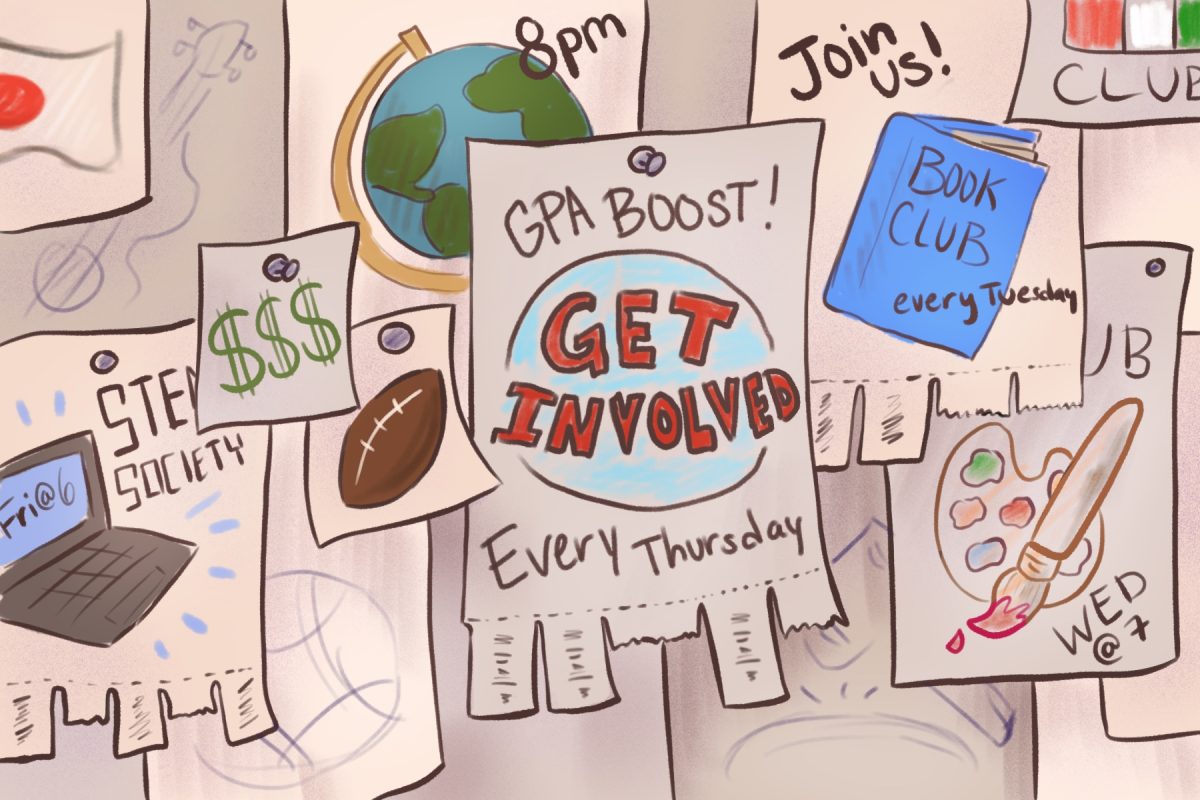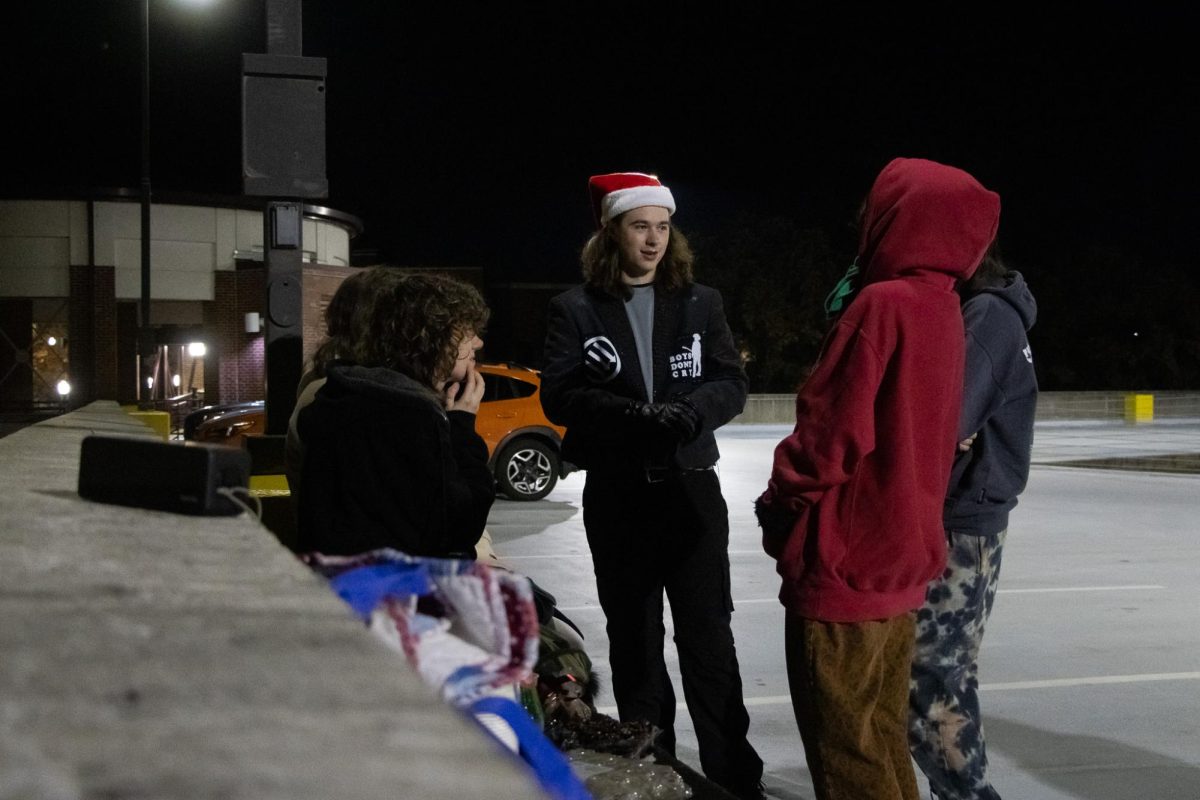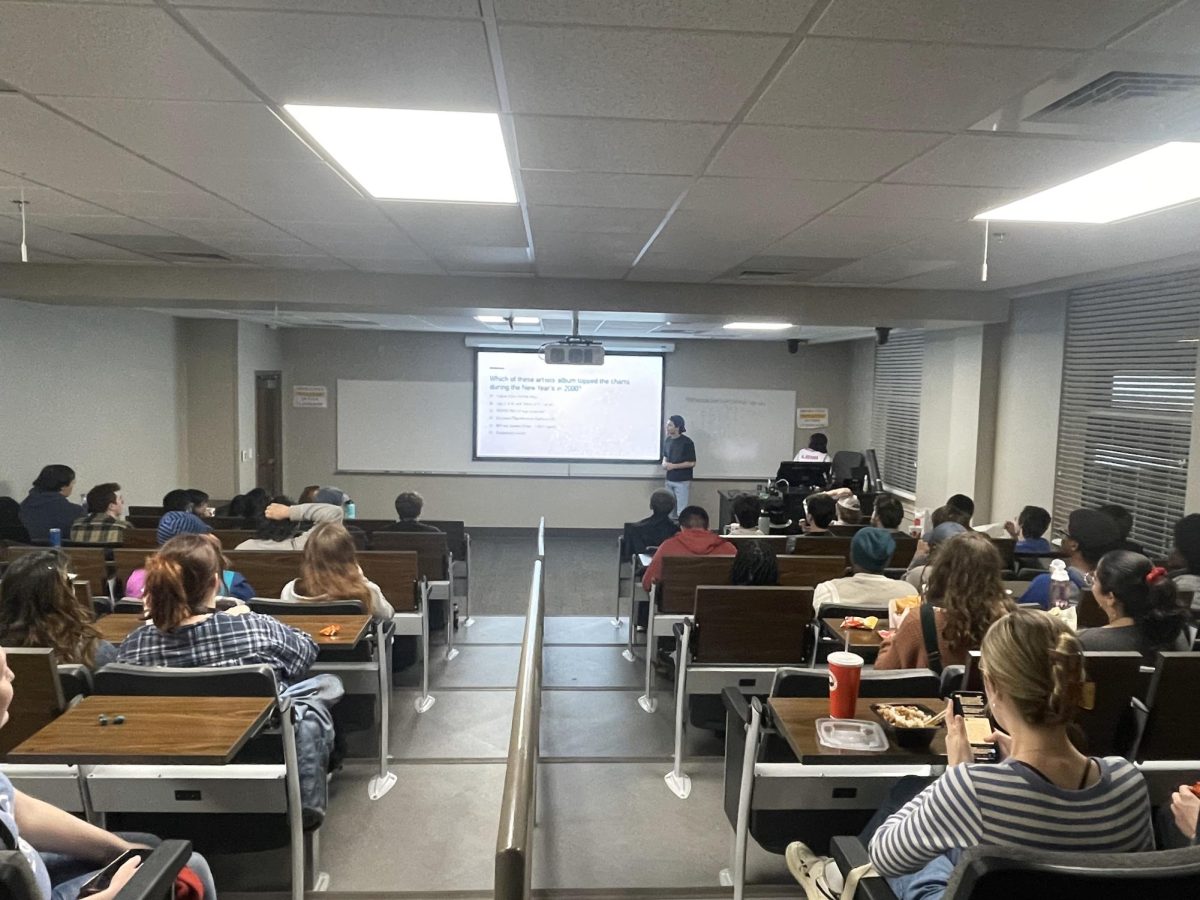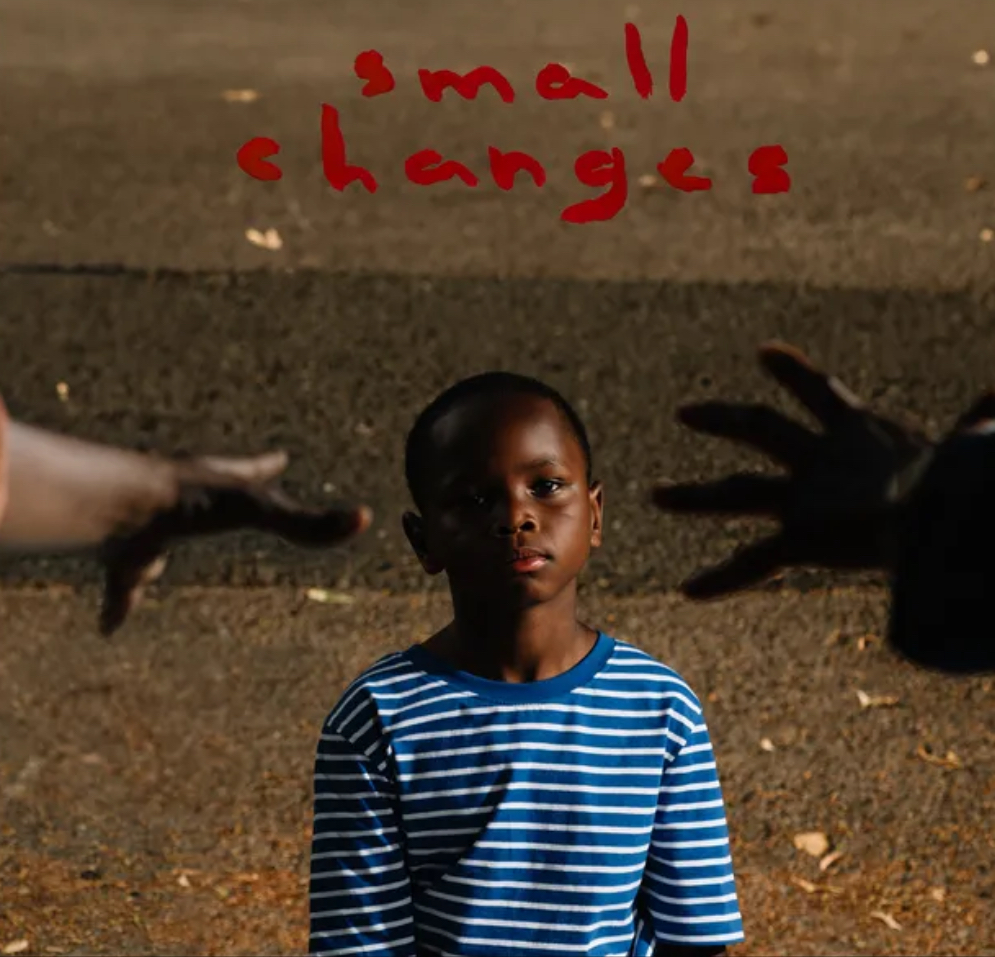Many students around the University are involved in the community in various ways, but sometimes, those commitments can become too much.
Students have the option to be a part of Greek life, a member of an honor society, the founder of a club, a volunteer at a charitable organization or anything in between.
The University has almost 600 student organizations, including more than 70 fraternities and sororities. Freshmen arriving on campus can quickly find themselves inundated with information, with invitations pouring in by email and at events like Get on Board Day.
Candace Johnson, a senior majoring in communication studies, recalled the pressure of attending GOBD during her first semester.
“Freshman year, they encourage you as much as possible … I feel that Get on Board Day is a great opportunity to get involved, but it can be overwhelming for those that haven’t really figured out what they want to join or what they want to do,” Johnson said.
Johnson is a member of Zeta Phi Beta, a reporter for WVUA 23, a communication studies delegate on the Student Executive Council and a contributing writer for Bama Life. Even though she carried a full schedule, her first year of college was even more crowded.
“Freshman year I joined a whole lot of different things at Get on Board Day. The next semester I had to very much narrow down what I wanted to do. I had to leave some groups and clubs so I wouldn’t get burned out,” Johnson said.
One culprit for this type of burnout can be overcommitment, or committing to more than what is reasonably accomplishable.
A 2021 study from Florida Atlantic University interviewed 21 undergraduate students and found three “major themes” that defined this kind of overcommitment: doing too much, lack of basic self-care and detriments to physical and mental health.
The author of the study, then-doctoral student Molly Adam, proposed her own hypothesis behind the phenomenon. Overcommitment, she said, can be defined as “a motivation cycle fueled by a high need of approval from self and others, that involves exerting excessive effort through numerous commitments, in hopes of obtaining delayed rewards.”
Her study found that the specific delayed reward is a unique aspect of the individual.
For example, some of the first-generation students who were in the study cited a need to be a role model for other first-gens or a lack of parental understanding of college expectations. Some students of color in the study said they wanted to overperform to prove that they weren’t “diversity hires” or receiving “hand-outs.” Other students just wanted to make up for a lack of experience in high school or to create a great portfolio for graduate school.
Another study, from Southern Arkansas University, pointed to increased student employment and hours worked as a source of academic struggle and stress. In 2020, 40% of full-time undergraduates in America were employed, with the majority of those students working 20 hours or more per week.
Johnson herself has had an on-campus job throughout her collegiate career at WVUA.
“They know we’re full-time students, so even though I’m working three days a week for three hours, it’s not only for the job. I’m able to get homework done and whatever else I need to as well because my boss is so flexible,” Johnson said.
Marilu Lopez is a news media major who also works with WVUA as an intern. She is the president of the UA chapter of Radio Television Digital News Organization, the events director for the Hispanic-Latino Association, a lab assistant in the Computer Science Department and an active member of her church.
She expressed concerns about the pressure new students face as they begin joining organizations.
“It takes up a lot of time, and then you might not realize it until you’re already way too deep into it and you’re drowning from all the things that you have,” Lopez said.
She said she thinks the issue stems from social attitudes toward working and effort.
“I think society has also been very much like, ‘you’re not doing something, you’re wasting time.’ If you’re taking some time for yourself it’s like, ‘why aren’t you working?’” Lopez said.
Some other busy students, like freshman music composition major Zhao Nelems, say that they haven’t experienced the same amount of pressure. Nelems spends his time outside of class marching with the Million Dollar Band and scoring films for the Rising Tide Film Festival.
“I feel like there’s so much stuff to do on the campus, it can be kind of overwhelming. You want to do so many things, so many different opportunities, but you can’t do all of them,” Nelems said.
Lopez said that having a central goal can be important in helping students focus their efforts and prevent excess commitment and stress. She also advised that her peers recognize the importance of self-care and self-forgiveness.
“It’s okay to mess up, and it’s okay to not be perfect,” Lopez said. “We’re all human. We’re all still learning. We’re all going to make mistakes, and that’s okay.”
Johnson emphasized the need for a “social outlet” to prevent burnout and noted a crucial tool for involved students: the word “no.”
“Learning how to say no is so liberating. You won’t hurt their feelings. You can just say, ‘I don’t have time for this,’ and they will understand,” Johnson said.









